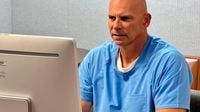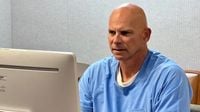After decades behind bars for one of America’s most notorious true crime cases, Erik and Lyle Menendez have once again been denied parole. The California parole board’s decisions, handed down on August 21 and 22, 2025, dashed the brothers’ hopes of early release, though they left open the possibility for future review. The Menendez brothers, convicted in 1996 for the 1989 murders of their parents, José and Kitty Menendez, at the family’s Beverly Hills mansion, will now have to wait at least another 18 months before they can try again for freedom.
The hearings, which spanned two days and lasted more than 11 hours in total, were described by KABC and the Associated Press as the closest the brothers have come to freedom since their convictions. Both Lyle and Erik Menendez were originally sentenced to life in prison without parole, but after a resentencing under California’s youth offender parole laws, they became eligible for parole hearings. This change came after years of legal battles and shifting perspectives on the impact of youth and childhood trauma on criminal behavior.
During the virtual hearing for Lyle Menendez, which took place from the Richard J. Donovan Correctional Facility in San Diego, Parole Commissioner Julie Garland acknowledged Lyle’s positive record in prison. "We find your remorse is genuine. In many ways, you look like you’ve been a model inmate. You have been a model inmate in many ways, who has demonstrated the potential for change. But despite all those outward positives, we see... you still struggle with anti-social personality traits like deception, minimization and rule-breaking that lie beneath that positive surface," Garland said, according to KABC.
Garland’s comments reflected a core concern for the board: Lyle’s repeated rule violations, particularly his near-continuous use of illicit cellphones from 2018 to 2024. The commissioner noted that, while to the outside world a cellphone may seem innocuous, in prison it can be a tool for much more serious infractions, such as ordering violence or coordinating contraband. "Incarcerated people who break rules are more likely to break rules in society as well," Garland warned. Lyle lost family visitation rights for three years in March 2024 as a result of these violations, a consequence that weighed heavily in the board’s decision.
Erik Menendez’s parole hearing, held a day earlier, was equally grueling. Commissioners pressed Erik on his own cellphone use and his past association with a prison gang, the Two Fivers, around 2013. Erik admitted, "What I got in terms of the phone and my connection with the outside world was far greater than the consequences of me getting caught with the phone." He described using the phone to stay in touch with his wife and for entertainment, but Commissioner Robert Barton called his behavior "selfish," reflecting a belief that "the rules do not apply to him and the ends justify the means."
Both brothers were also questioned at length about the abuse they suffered as children. Lyle disclosed, for the first time in such detail, that he was sexually abused by his father from ages six to eight and by his mother at age 13. He described a childhood marked by fear, confusion, and a desperate need for connection. "I worried a little bit that I was going to be less loved," Lyle said, his voice breaking. He explained that, at the time, he did not recognize his mother’s actions as abuse, saying, "I just saw it as something special between my mother and I. So, I don’t like to talk about it that way. Today, I see it as sexual abuse."
Garland and other commissioners weighed these revelations carefully, acknowledging the negative and dysfunctional environment created by José Menendez. The parole board gave "great weight" to youth offender factors, since Lyle was under 26 at the time of the crime and thus more susceptible to his environment. Still, the commissioners remained troubled by the brutality of the murders and the brothers’ actions in covering up the crime. Barton told Erik, "I can’t put myself in your place. I don’t know that I’ve ever had rage to that level, ever. But that is still concerning, especially since it seems [your mother] was also a victim herself of the domestic violence."
Family members spoke passionately on behalf of both brothers, with more than a dozen relatives testifying over the two days. Aunt Teresita Menendez-Baralt, herself dying of cancer, told the board, “I want to make clear that although I love my brother, I have fully forgiven Erik. Erik carries himself with kindness, integrity and strength that comes from patience and grace.” Kitty Menendez’s great-niece, Natascha Leonardo, promised to provide a home of "unconditional love and stability" for Erik in Colorado if he were released.
Despite the support from family and the brothers’ own expressions of remorse, the board remained unconvinced that either man no longer posed a risk to society. Deputy District Attorney Ethan Millius cited Lyle’s pattern of "lies made to avoid the consequences of his own actions" and questioned whether he had "genuinely" taken accountability. The recency of cellphone violations was seen as especially problematic, suggesting a persistent disregard for rules even in a highly structured environment.
Still, the commissioners left the door open for future consideration. Both Lyle and Erik Menendez received three-year denials, but they are eligible to request an administrative review after one year. If granted, they could appear before the parole board again as early as 18 months from now. Los Angeles District Attorney Nathan Hochman noted, "If and when they do come clean, and hopefully, they spend the next three years rehabilitating and committing no more prison violations, then yes, the D.A.’s office will re-evaluate its position in the next parole hearing."
The Menendez family, in a statement, expressed disappointment but also pride in how the brothers conducted themselves. "We know they are good men who have done the work to rehabilitate and are remorseful. We love them unconditionally and will continue to stand by them on the journey ahead."
Meanwhile, the Menendez brothers’ legal team continues to pursue a habeas corpus petition, seeking a new trial based on new evidence. Lyle, who is currently working on his master’s degree and is active in mentorship and rehabilitation programs in prison, reflected on his journey: "My life has been defined by extreme violence. I wanted to be defined by something else," he said through tears.
With the parole board’s decision, the Menendez brothers remain in prison, but the possibility of freedom—however distant—still lingers. Their next opportunity for review is not guaranteed, but as public interest in their case endures, and as the criminal justice system continues to grapple with questions of trauma, accountability, and redemption, the story of Erik and Lyle Menendez is far from over.



